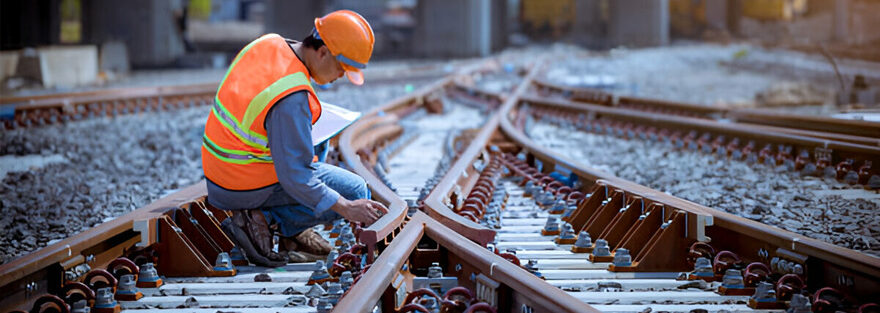An insight on Indian Railway Component Standards and Regulations
Railway components manufacturers and suppliers operate in a highly regulated environment governed by industry standards and regulations. Compliance with these standards is essential to ensure the safety, reliability, and interoperability of railway components. In this article, we will explore the importance of railway component standards and regulations, with a focus on Indian standards organizations, and how manufacturers navigate this regulatory landscape to deliver high-quality products to their customers.
In India, railway component standards are established by organizations such as the Research Designs and Standards Organization (RDSO), which is responsible for developing and maintaining technical standards for railway components and infrastructure. RDSO sets specifications, testing protocols, and performance criteria for various railway components, including tracks, signaling systems, rolling stock, and electrical equipment. Compliance with RDSO standards is mandatory for railway components manufacturers operating in India, ensuring uniformity, quality, and safety across the Indian railway network.
Regulatory Requirements for Railway Components
In addition to standards set by organizations like RDSO, railway components must comply with regulatory requirements imposed by government agencies such as the Ministry of Railways in India. These regulations establish minimum safety standards, performance criteria, and operational requirements for railway components to ensure the safety of passengers, crew, and the public. Regulatory requirements may cover areas such as structural integrity, material properties, fire resistance, electromagnetic compatibility, and environmental impact.
Certification and Compliance Testing
Railway components manufacturers in India must demonstrate compliance with Indian standards and regulatory requirements through certification and compliance testing. Certification bodies and testing laboratories accredited by organizations like RDSO conduct rigorous testing and evaluation of railway components to verify their compliance with applicable standards and regulations. Once certified, railway components receive a mark or certification label indicating their compliance with relevant Indian standards and regulations.
Impact of Standards and Regulations on Product Development
Indian railway component standards and regulations have a significant impact on the product development process for manufacturers. Compliance with these standards requires manufacturers to invest in research, development, and testing to ensure their products meet the required performance criteria and safety standards. Manufacturers must also stay informed about updates and revisions to Indian standards and regulations to ensure ongoing compliance and market competitiveness
Ensuring Safety and Reliability
Compliance with Indian railway component standards and regulations is essential to ensure the safety and reliability of railway infrastructure and operations in India. Adherence to established standards helps prevent accidents, minimize risks, and maintain the integrity of Indian railway systems, reducing the potential for injuries, fatalities, and property damage. By meeting stringent safety and performance requirements, railway component manufacturers contribute to the overall safety and efficiency of Indian railway networks.
International Harmonization and Interoperability
Indian railway component standards and regulations also play a crucial role in promoting international harmonization and interoperability among different railway networks and systems. Harmonized standards facilitate the exchange of railway components between countries and regions, streamlining procurement processes and reducing barriers to market entry for Indian manufacturers. Additionally, interoperable components enable seamless integration and interoperability of Indian railway systems with global standards, facilitating international trade and collaboration in the railway industry.
In summary, Indian railway component standards and regulations are essential for ensuring the safety, reliability, and interoperability of railway infrastructure and operations in India. Compliance with these standards is paramount for manufacturers, who must navigate a complex regulatory landscape to deliver high-quality products that meet the requirements of customers, regulators, and end-users. By adhering to Indian standards and regulations, manufacturers contribute to the safety, efficiency, and sustainability of Indian railway networks.
Post published by VTTPL Editorials. Stay tuned for more articles exploring the latest trends and innovations in railway infrastructure and technology, including insights from railway components.




